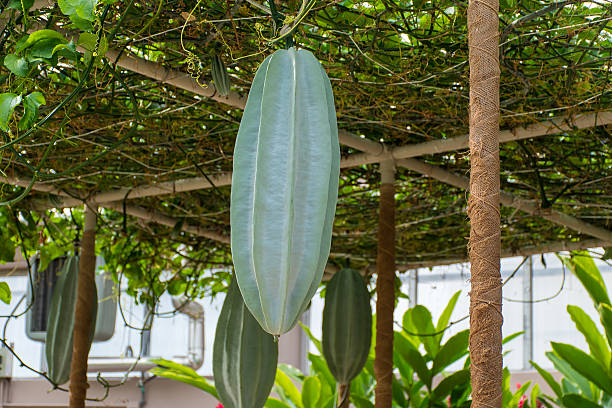Are you looking for the best fertilizer for soybeans? Soybeans are a popular crop for farmers because of their versatility, nutritional value, and high yield potential. However, to maximize yield and quality, you need to provide your soybeans with the right nutrients. In this article, we will explore the 21 best fertilizers for soybeans, both organic and inorganic.
The best fertilizer for Soybeans includes Compost, Fish Emulsion, Bone Meal, Seaweed Extract, Blood Meal, Miracle-Gro All Purpose Plant Food, Jobe’s Organics Vegetable & Tomato Fertilizer, Espoma Organic Garden-Tone Plant Food, Scotts Turf Builder Lawn Food, and Milorganite Organic Nitrogen Fertilizer.
Soybeans are a nutrient-rich crop that can be used for a variety of purposes, from animal feed to tofu and soy milk. To get the best yield and quality from your soybean crop, you need to provide them with the right nutrients. Choosing the best fertilizer for soybeans can be a daunting task, but this article will help you narrow down your options.
21 Best Fertilizer for Soybeans Organic & Inorganic: Maximizing Yield and Quality
1. Composted Manure:
Composted manure, such as cow or chicken manure, is an excellent source of organic matter, nitrogen, phosphorus, and potassium. It improves soil fertility and promotes healthy soybean growth.
Read Also: 15 Best Fertilizers for Beans [Organic & Inorganic]
2. Cover Crops:
Planting cover crops, such as legumes or grasses, and then incorporating them into the soil before planting soybeans can provide a natural source of nitrogen and other nutrients.
Read Also: The Ultimate Guide to Maize Fertilizer Schedule: Boost Your Crop’s Growth
3. Fish Emulsion:
Fish emulsion is a liquid organic fertilizer made from decomposed fish. It contains essential nutrients like nitrogen, phosphorus, and trace elements, providing a quick nutrient boost to soybean plants.
4. Seaweed Extract:
Seaweed extract is rich in trace minerals, growth hormones, and beneficial plant compounds. It enhances nutrient uptake, improves plant vigor, and boosts resistance to stress.
Read Also: 15 Best Fertilizers for Watermelon: Organic & Inorganic
5. Bone Meal:
Bone meal is a slow-release organic fertilizer rich in phosphorus, which is crucial for root development and flowering. It can be applied at planting to promote strong root growth in soybeans.
7. Miracle-Gro All Purpose Plant Food:
This all-purpose fertilizer is perfect for soybeans, providing them with a balanced mix of nutrients.
Read Also: 12 Liquid Fertilizers for Maize: Boost Your Crop’s Growth!
8. Jobe’s Organics Vegetable & Tomato Fertilizer:
Made from natural ingredients, this fertilizer is perfect for those looking for an organic option.
9. Espoma Organic Garden-Tone Plant Food:
Another great organic option, this fertilizer is made from all-natural ingredients and is perfect for promoting healthy soybean growth.
Read Also: 15 Best Fertilizers for Tobacco [Organic & Inorganic]
10. Scotts Turf Builder Lawn Food:
While not designed specifically for soybeans, this lawn fertilizer provides a great source of nitrogen, which soybeans need for growth.
11. Milorganite Organic Nitrogen Fertilizer:
This organic fertilizer is high in nitrogen and perfect for promoting healthy soybean growth.
Read Also: Fertilizer Schedule for Tomatoes: Maximizing Your Tomato Harvest
12. Fox Farm Happy Frog Tomato & Vegetable Fertilizer:
Made from natural ingredients, this fertilizer is perfect for promoting healthy soybean growth and improving yield.
13. Jobe’s Organics Bone Meal Fertilizer:
Another great organic option, this bone meal fertilizer is perfect for promoting strong root growth in soybeans.
Read Also: Fertilizer Schedule for Lawns: A Comprehensive Guide to Achieving a Lush, Green Yard
14. Miracle-Gro Water Soluble All Purpose Plant Food:
This water-soluble fertilizer is perfect for soybeans and provides them with a balanced mix of nutrients.
15. Scotts Miracle-Gro Continuous Release Plant Food:
This continuous release fertilizer is perfect for soybeans and provides them with a slow-release source of nutrients.
Read Also: Fertilizer Schedule for Sugarcane: Maximizing Yield with Proper Nutrient Management
16. Alaska Fish Fertilizer:
Made from fish, this organic fertilizer is perfect for promoting healthy soybean growth and improving yield.
17. Garden Safe Fungicide3 Insecticide and Miticide:
This all-in-one product is perfect for promoting healthy soybean growth and protecting them from insects and disease.
Read Also: Fertilizer Schedule for Apple Trees: Optimal Nutrition for Bountiful Harvests
18. Bonide Liquid Iron Concentrate:
Soybeans need iron for healthy growth, and this liquid iron concentrate is a great way to provide it.
19. Southern Ag Essential Minor Element Granular Lawn and Garden Nutritional Supplement:
This granular fertilizer provides a variety of essential micronutrients that soybeans need for healthy growth.
Read Also: 15 Best Fertilizers for Okra Farms [Organic & Inorganic]
20. J R Peters Jack’s Classic All Purpose Fertilizer:
Another all-purpose fertilizer, this one is perfect for promoting healthy soybean growth and improving yield.
21. Plant Magic Plant Food Organic Fertilizer:
Made from all-natural ingredients, this organic fertilizer is perfect for those looking for a sustainable option.
Read Also: 15 Best Fertilizer for Sweet Potatoes Farm [Organic & Inorganic]
Can I use any fertilizer on soybeans?
While soybeans are a hardy crop that can tolerate a wide range of soil conditions, it’s important to choose a fertilizer specifically formulated for soybeans. This ensures that they receive the right balance of nutrients for optimal growth and yield.
Read Also: 15 Best Fertilizer for Rice Farm [Organic & Inorganic Fertilizers]
What nutrients are important for soybean growth?
Soybeans require a balanced supply of macronutrients such as nitrogen (N), phosphorus (P), and potassium (K). Additionally, they benefit from micronutrients like iron (Fe), manganese (Mn), zinc (Zn), and boron (B). These nutrients play crucial roles in various aspects of soybean growth, from root development to flower and pod formation.
Why should I consider using organic fertilizer on my soybeans?
Organic fertilizers offer several advantages for soybean cultivation. They are derived from natural sources and contain beneficial microorganisms that enhance soil health. Organic fertilizers also improve soil structure and water retention, promote nutrient availability, and reduce the risk of chemical buildup in the soil over time. Additionally, organic fertilizers are environmentally friendly and support sustainable farming practices.
Can I mix organic and inorganic fertilizers for my soybeans?
Yes, it is possible to combine organic and inorganic fertilizers to meet the nutrient requirements of soybeans. This approach allows you to leverage the benefits of both types of fertilizers. Organic fertilizers provide long-term soil improvement and slow-release nutrients, while inorganic fertilizers deliver fast-acting nutrients that can address immediate nutrient deficiencies. However, it is essential to carefully follow application instructions and consider the specific needs of your soybeans.
How often should I fertilize my soybeans?
The frequency of fertilization depends on various factors such as soil fertility, nutrient requirements, and growth stage of the soybeans. Generally, it is recommended to apply fertilizers during planting or shortly after emergence.
Applications may be necessary during the growing season, especially if soil tests indicate nutrient deficiencies. Regular monitoring of the soybean plants and soil conditions can help determine the need for additional fertilization.
Are there any precautions I should take when applying fertilizers to soybeans?
When applying fertilizers, it is crucial to follow the manufacturer’s instructions regarding the appropriate application rates and timing. Avoid over-fertilization, as this can lead to nutrient imbalances, environmental pollution, and reduced crop quality.
Be cautious when applying fertilizers near the soybean plants to prevent root damage. It is advisable to consult with agricultural experts or extension services for specific recommendations based on your location and soil conditions.
Can I make my own organic fertilizer for soybeans?
Yes, it is possible to create homemade organic fertilizers for soybeans. Composting kitchen scraps, yard waste, and animal manure is a popular method to produce nutrient-rich compost that can be used as organic fertilizer.
Natural ingredients like seaweed, bone meal, and fish emulsion can be used to make organic fertilizer solutions. However, it’s important to research and follow proper composting techniques and ingredient ratios to ensure safe and effective homemade fertilizers.
Conclusion
Choosing the best fertilizer for soybeans is essential for maximizing yield and quality. Whether you opt for organic or inorganic options, the 15 fertilizers mentioned in this article provide excellent choices to meet the nutrient needs of your soybean crop. Remember to consider factors like soil conditions, nutrient requirements, and sustainability when making your selection. By providing your soybeans with the right nutrients, you can ensure healthy growth, abundant yields, and a successful harvest.



